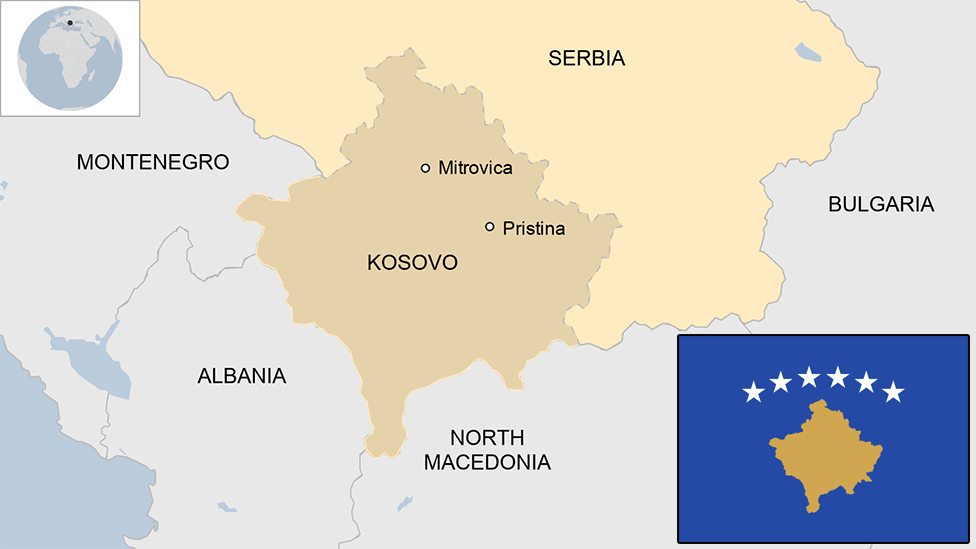Serbia country profile
- Published
This page is no longer being updated. It was last updated on 28 January 2025

Serbia became a stand-alone sovereign republic in the summer of 2006 after Montenegro voted in a referendum for independence from the Union of Serbia and Montenegro.
The end of the Union marked the closing chapter in the separation of the six republics of the old Socialist Republic of Yugoslavia, which was proclaimed in 1945 and comprised Serbia, Montenegro, Slovenia, Croatia, Bosnia-Herzegovina and Macedonia.
Yugoslavia's communist leader, Josip Broz Tito, kept the lid on ethnic tensions. The federation lasted for over 10 years after his death in 1980, but under Serbian nationalist leader Slobodan Milosevic it fell apart through the 1990s.
The secession of Slovenia and Macedonia came relatively peacefully, but there were devastating wars in Croatia and Bosnia. Serbia and Montenegro together formed the Federal Republic of Yugoslavia between 1992 and 2003 before forming a looser union.
In 2008, Kosovo unilaterally declared its independence.
In recent years the ruling Serbian Progressive Party (SNS) has steadily eroded political rights and civil liberties, putting pressure on independent media, the political opposition, and civil society organizations, says the democracy advocacy group Freedom House.
Read more country profiles, external - Profiles by BBC Monitoring, external
REPUBLIC OF SERBIA: FACTS
Capital: Belgrade
Area: 77,474 sq km (excluding Kosovo)
Population: 6.7 million (excluding Kosovo)
Language: Serbian
Life expectancy: 71 years (men) 77 years (women)
LEADERS
President: Aleksandar Vucic
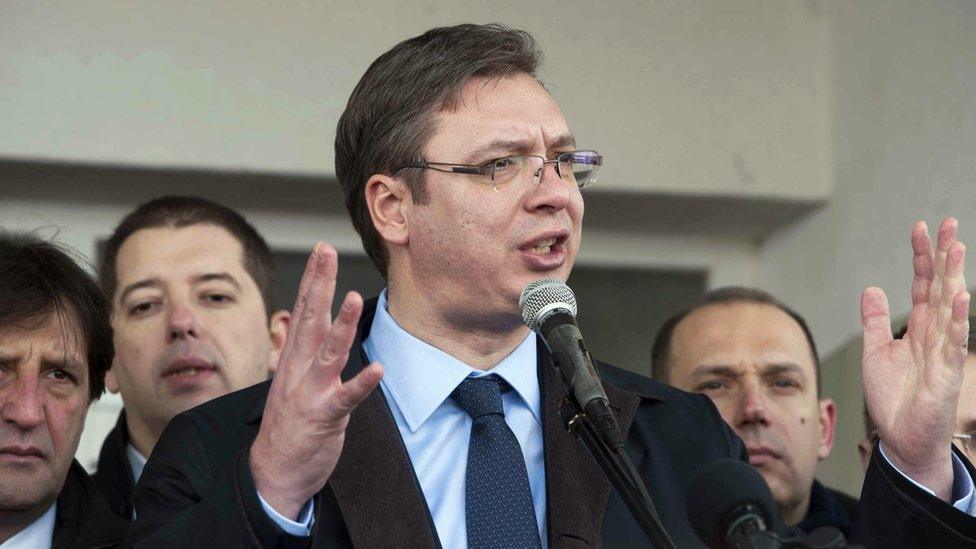
President Aleksandar Vucic claimed a re-election victory in the country's snap December 2023 elections, with his Serbian Progressive Party, or SNS, winning some 47% of the vote. Opposition parties under the Serbia Against Violence (SPN) banner were well behind with around 23%.
The vote was almost immediately marred by accusations of irregularities.
The International Election Observation Mission said in a statement that "serious irregularities, including vote-buying and ballot box stuffing were observed".
The SNS has been in power since 2012 but there have been three elections since 2020.
Opposition figures accused the SNS of using public resources for political purposes and election monitor CRTA complained before the vote of a "chronic lack of pluralism" in Serbia.
In 2021, Amnesty International characterised his mandate as one of human rights violations, restrictions on freedom of expression and campaigns of harassment against the opposition figures, journalists and media outlets.
Serbia is a candidate to become a member of the European Union, and President Vucic is under pressure from both the EU and the US to normalise relations with Kosovo.
Kosovo declared unilateral independence from Serbia in 2008, and while it is recognised by more than 100 UN members, Serbia has refused to do so - backed by allies like Russia, China and five EU members.
Prime minister: Milos Vucevic (resigned)
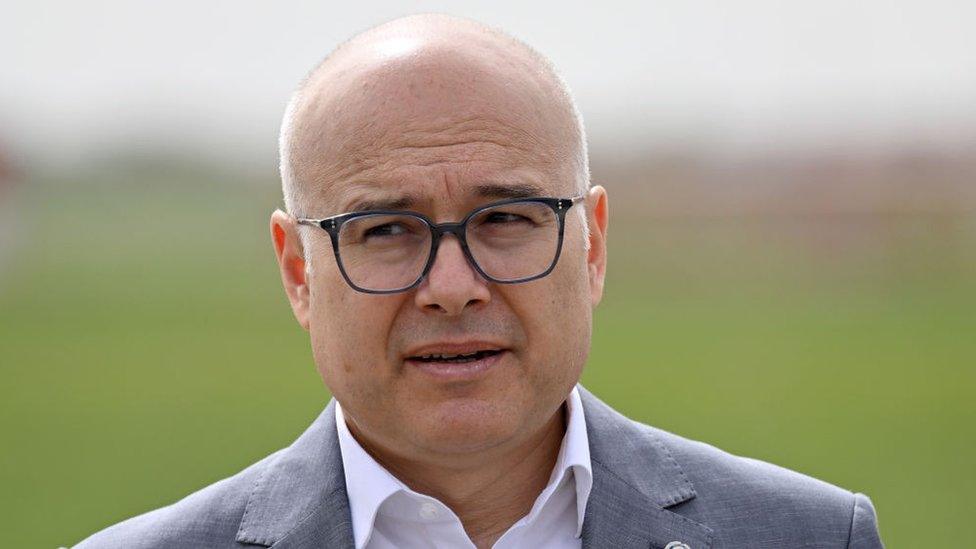
Milos Vucevic resigned in January 2025 amid student-led anti-corruption protests following the November 2024 collapse of roof of a railway station in Novi Sad on 1 November, which killed 15 people.
Vucevic, the leader of the ruling Serbian Progressive Party (SNS) became prime minister in May 2024, taking over from Ana Brnabic.
His government had the challenge of maintaining Serbia's relations with Russia and China while pursuing its goal of European Union membership.
In a speech shortly after his appointment, Vucevic told the Serbian parliament that EU membership remained Serbia's goal but that the "burdens" introduced into the membership process "cannot be ignored."
He said EU expectations were tied to Serbia "humiliating" itself by recognising Kosovo's independence and joining sanctions against Russia for its invasion of Ukraine.
MEDIA

Television is, by far, the main source of news and information. The flagship public network, RTS1, is among a handful of outlets that dominate the market.
There are more than 90 TV channels and the average viewer spends more than five hours a day watching television, the highest figure in Europe.
Six TV stations are licensed to broadcast nationally; 30 have regional licences. The national TV broadcasters attract around 70% of the audience.
RTS1 is the most popular channel in Serbia, attracting up to a quarter of the audience and providing strong competition for commercial stations, including leading commercial network TV Pink.
Read full media profile
TIMELINE
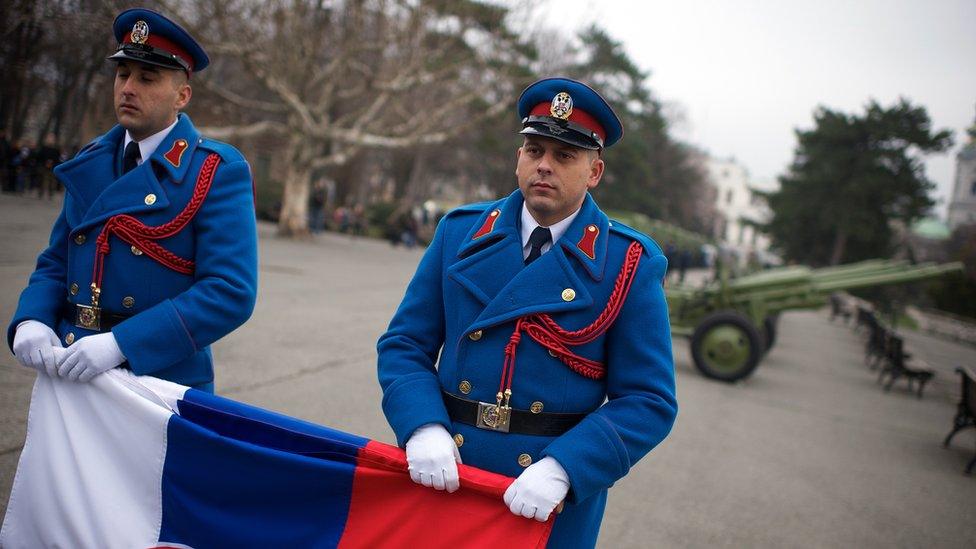
Soldiers hold the national flag as part of Serbia's Statehood Day celebrations
Some key dates in Serbia's history:
1389 - Serb nobility decimated in battle of Kosovo Polje as Ottoman Empire expands.
15th - 18th Centuries - Serbia absorbed by Ottoman Empire.
1817 - Serbia becomes autonomous principality.
1878 - Serbian independence recognised by international treaties.
1918 - Kingdom of Serbs, Croats and Slovenes - later Yugoslavia - formed after World War One.
1945 - Together with Slovenia, Macedonia, Croatia, Bosnia and Montenegro, Serbia becomes one of republics in new Socialist Federal Republic of Yugoslavia under Josip Broz Tito.
1980 - Tito dies.
1989 - Slobodan Milosevic becomes President of Serbia.
1991 - Slovenia, Macedonia, Croatia and Bosnia break away from Yugoslavia.
1992 - Montenegro and Serbia form Federal Republic of Yugoslavia. Rising nationalist and independence aspirations bring bloody conflict with Croats and Bosnian Muslims. UN imposes sanctions.
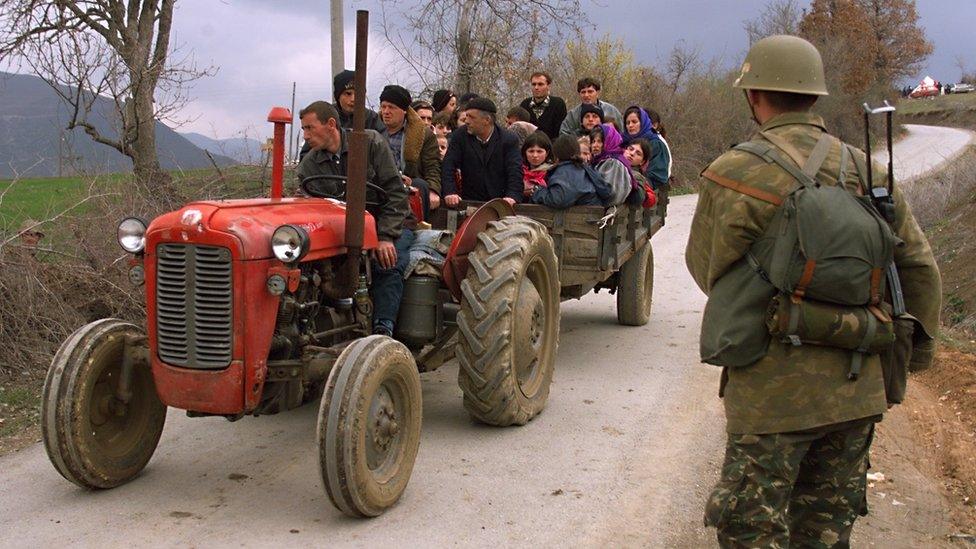
Refugees fleeing Kosovo during the crisis of 1999
1995 - Dayton accords bring end to Bosnian war. Sanctions lifted.
1997 - Milosevic becomes Yugoslav president.
1998 - Kosovo Liberation Army rebels against Serbian rule. Serb forces launch brutal crackdown. Hundreds of thousands of Kosovo Albanians flee.
1999 - Defiance by Slobodan Milosevic over Kosovo sparks Nato air strikes against Serbian targets. Milosevic agrees to withdraw forces from Kosovo. Kosovo becomes UN protectorate but remains de jure part of Serbia.
2002 - Trial of Slobodan Milosevic on charges of genocide and war crimes begins in The Hague.
2006 - Milosevic found dead in his cell in The Hague.
2006 - Montenegro votes in a referendum to separate from Serbia and declares independence.
2008 - Kosovo unilaterally declares independence, which is gradually recognised by the US and most EU and Nato countries but not Serbia.
2008 - Former Bosnian Serb leader Radovan Karadzic, who evaded capture on war crimes charges for almost 13 years, is arrested by Serbian security forces in Belgrade and flown to The Hague to stand trial.
2011 - Serbian authorities arrest former Bosnian Serb military chief Ratko Mladic.
2013 - Serbia and Kosovo sign landmark agreement on normalising relations.
2014 - EU membership talks begin.
2016 - UN tribunal finds former Bosnian Serb leader Radovan Karadzic guilty of genocide and war crimes and sentences him to 40 years in prison.
2017 - Former Bosnian Serb commander Ratko Mladic is jailed for life for genocide and other atrocities in the 1990s Bosnian war.
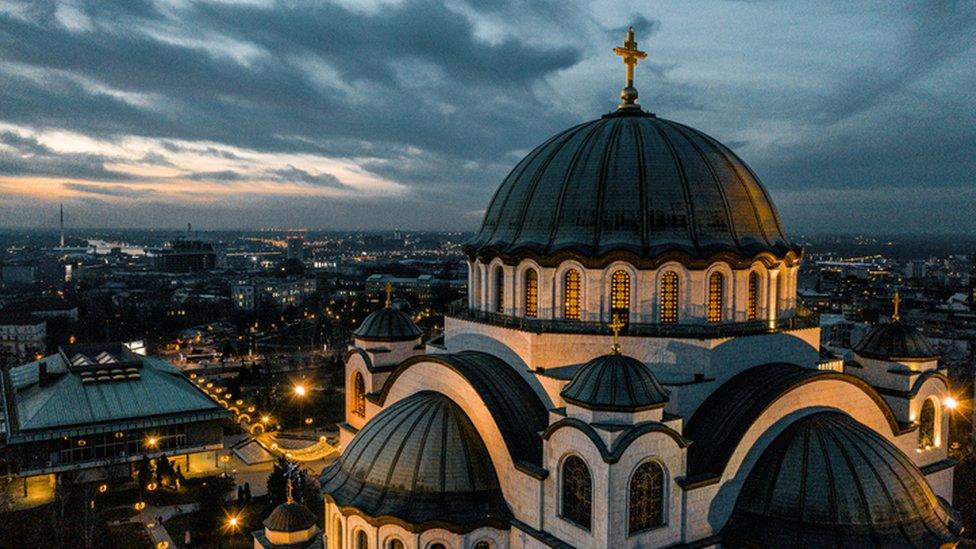
St Sava, in Belgrade, which was built between 1935-2004, is one of the largest churches in the world
- Published22 May 2023
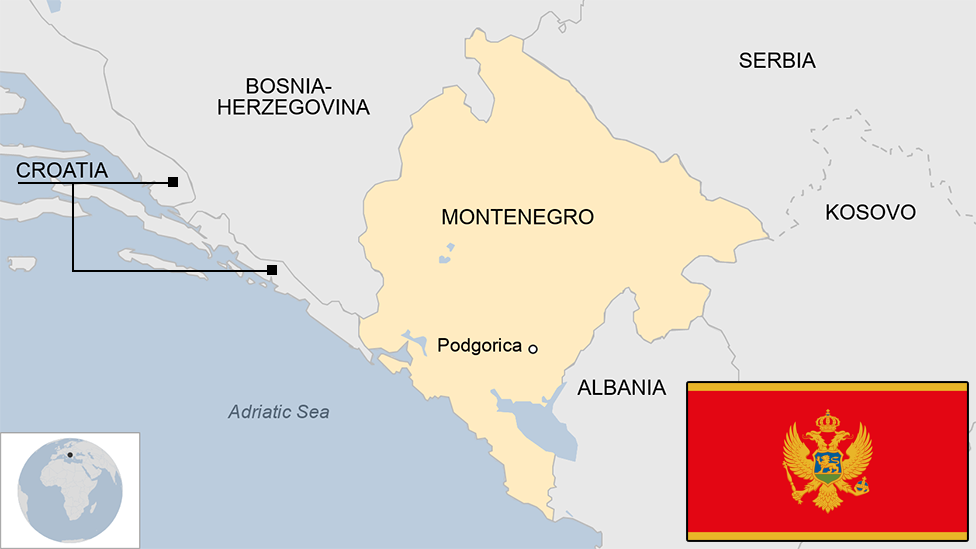
- Published7 February
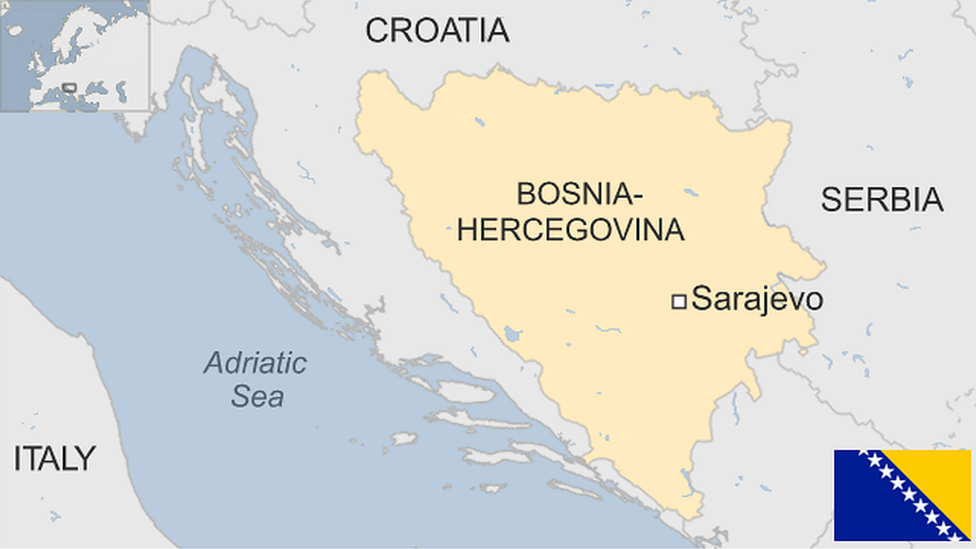
- Published13 January
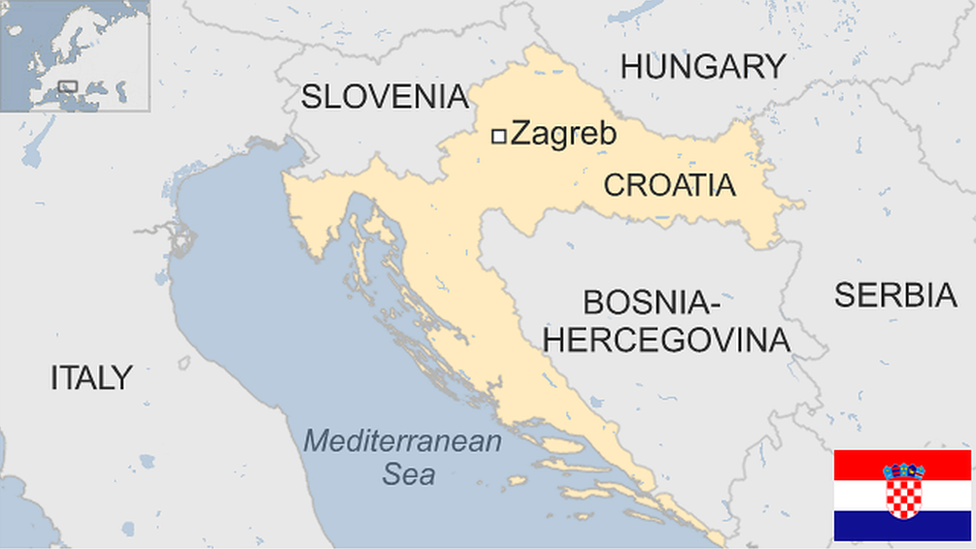
- Published28 June 2023
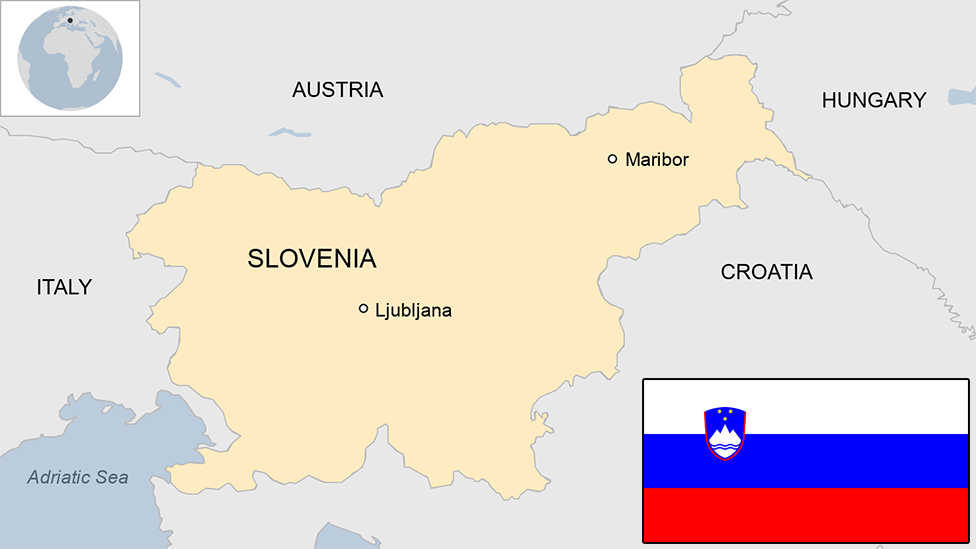
- Published4 June 2024
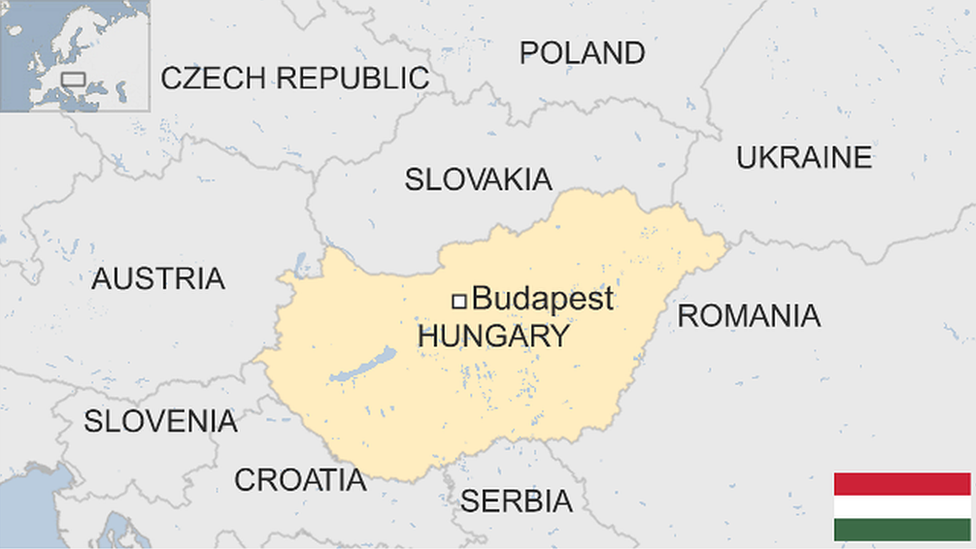
- Published18 December 2024
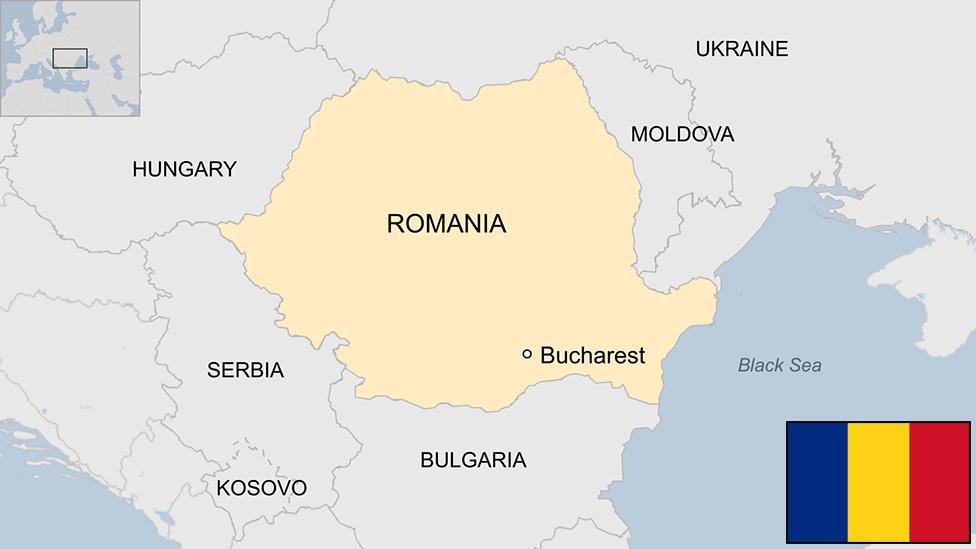
- Published20 January
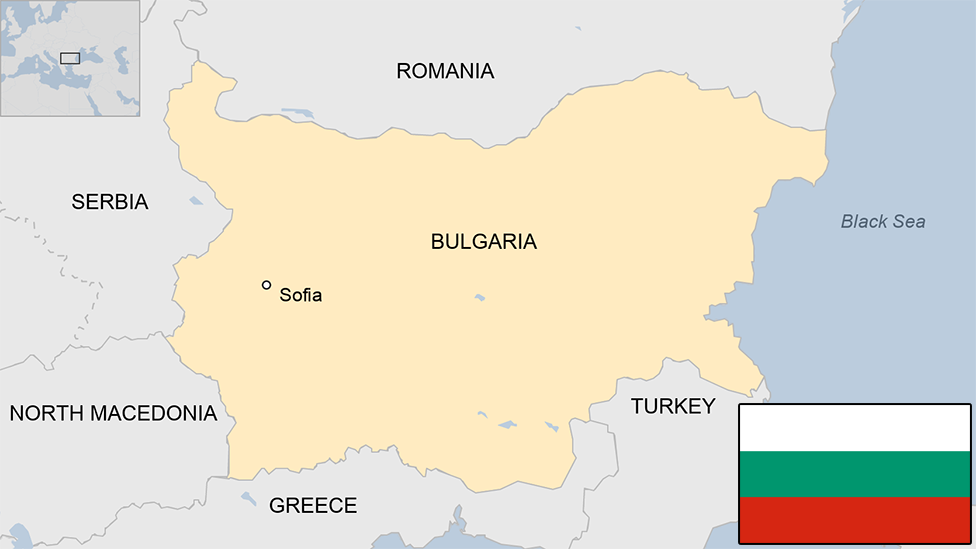
- Published10 June 2024
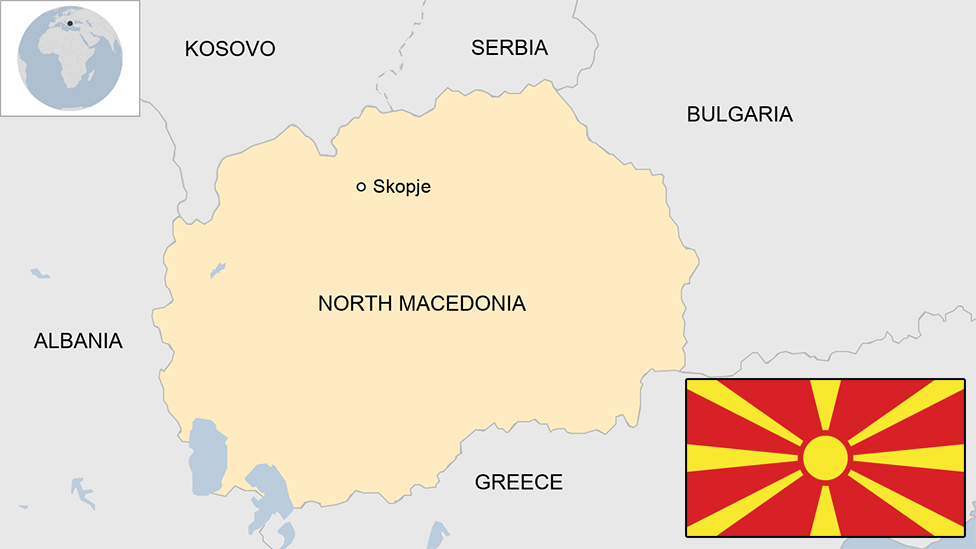
- Published28 June 2023
